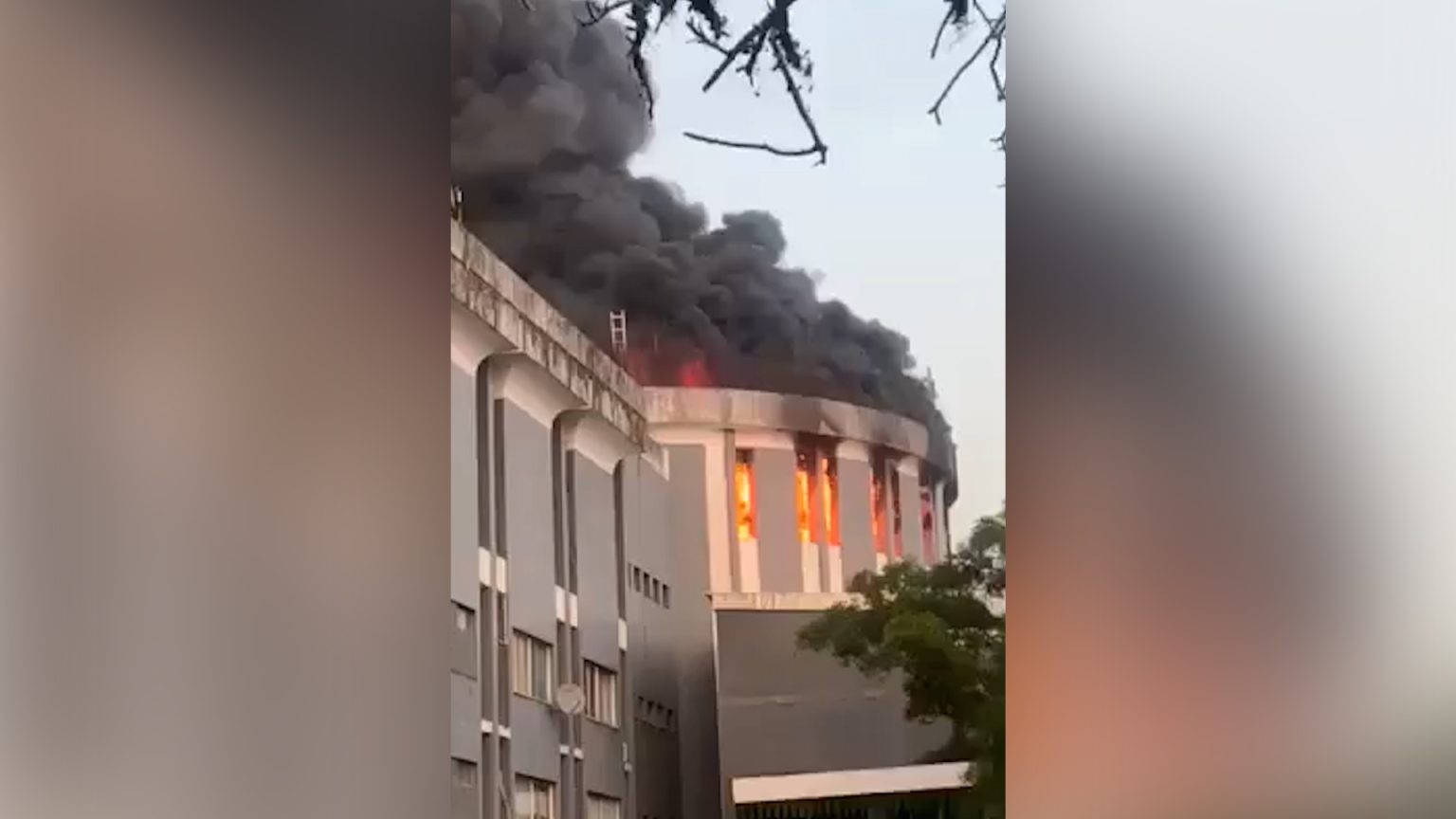The Liberian parliament building in Monrovia, a prominent symbol of the nation’s democracy, experienced a second devastating fire within a single week on December 18, 2024. Flames were observed engulfing the building’s iconic dome, raising immediate concerns about the extent of the damage and the potential impact on the country’s legislative processes. This second incident follows a previous fire just days earlier, which itself had prompted investigations into the cause and raised questions about the building’s safety protocols. The recurrence of the fire so quickly after the first incident has intensified these concerns and fueled speculation about potential sabotage, negligence, or systemic issues within the building’s infrastructure. The incident has sent shockwaves throughout the country and sparked widespread public discourse.
The recurring fires represent a significant blow to Liberia’s political stability and democratic processes. The parliament building serves as the seat of the country’s legislative branch, and the damage caused by the fires could disrupt crucial legislative functions, potentially impacting the country’s governance and ability to address pressing national issues. The destruction of important documents, records, and equipment within the building could further hinder legislative operations and hamper the ability of lawmakers to effectively represent their constituencies. Beyond the immediate practical implications, the fires also carry symbolic weight, representing a vulnerability within the heart of Liberian democracy and raising questions about the security and integrity of the nation’s institutions.
Authorities have launched an investigation into the cause of the second fire, with preliminary inquiries likely focusing on both accidental and intentional causes. The proximity of the two incidents naturally raises suspicions of arson or deliberate sabotage, potentially linked to political motivations or internal disputes. Investigators will likely scrutinize security footage, interview witnesses, and analyze the fire patterns to determine the origin and nature of the blaze. The investigation will also need to address concerns surrounding the building’s fire safety systems, including fire suppression equipment, alarms, and emergency response protocols, particularly in light of the first fire. A thorough and transparent investigation is crucial to allay public concerns and restore confidence in the integrity of the government and its institutions.
The response to the fire from the Liberian government and the international community will be crucial in addressing the immediate aftermath and the long-term consequences. Immediate priorities likely include securing the site, assessing the extent of the damage, and ensuring the safety of personnel and vital records. The government may need to establish temporary facilities for parliamentary operations to ensure continuity of legislative functions. International partners may offer assistance in the form of technical expertise, financial aid, and logistical support for the investigation and reconstruction efforts. The response will also need to address the underlying issues that may have contributed to the fires, including potential shortcomings in building safety and security protocols.
The repeated fires at the Liberian parliament building have far-reaching implications, extending beyond the immediate physical damage. The incidents could potentially exacerbate existing political tensions within the country and undermine public trust in the government’s ability to effectively manage national affairs. The disruption to legislative processes could delay crucial policy decisions and hinder progress on pressing national issues, such as economic development, social reforms, and security sector reform. Furthermore, the fires could impact Liberia’s international standing and its ability to attract foreign investment and development assistance. Rebuilding the parliament building and restoring public confidence will require a concerted effort from the Liberian government, with the support of the international community.
In the long term, the fires serve as a stark reminder of the importance of robust building safety regulations, effective emergency response protocols, and transparent governance practices. The Liberian government should prioritize implementing comprehensive fire safety measures in all public buildings, including regular inspections, updated equipment, and adequate training for personnel. Strengthening security protocols to prevent future incidents of arson or sabotage will be equally crucial. Furthermore, the government should promote transparency and accountability in the investigation and reconstruction process to rebuild public trust and demonstrate its commitment to safeguarding the integrity of the nation’s democratic institutions. The fires at the parliament building present a significant challenge for Liberia, but they also offer an opportunity to strengthen the country’s resilience and bolster its commitment to good governance and democratic principles.

